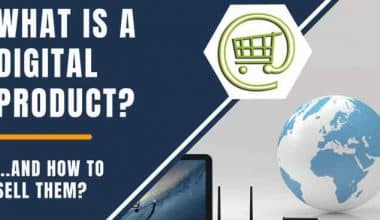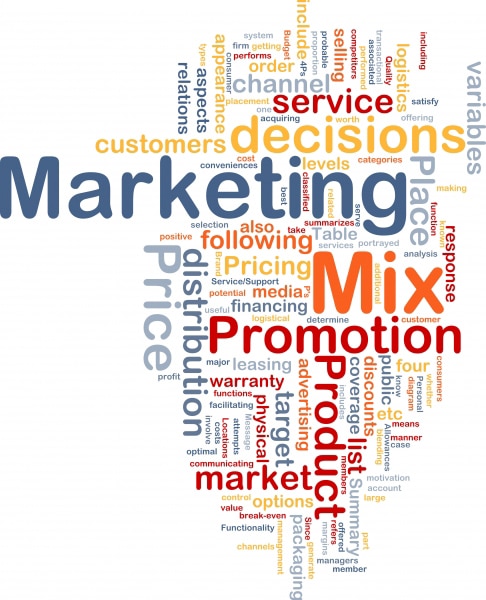Marketing automation system is a rapidly growing trend in the world of marketing, and it’s easy to see why.
With the rise of digital technologies and the increasing demands on marketing teams, it’s more important than ever to find ways to streamline and automate marketing processes. That’s where marketing automation systems come in.
These powerful tools can help businesses to save time, increase efficiency, and improve the effectiveness of their marketing campaigns. But what exactly is a marketing automation system, and how does it work?
In this article, we’ll explore the basics of marketing automation, the benefits it can offer, and how it can help businesses to achieve their marketing goals.
Whether you’re just starting out with marketing automation or you’re looking to take your efforts to the next level, this guide will provide you with the information you need to get started.
So let’s dive in and learn all about marketing automation systems – what they are and how they work.
What is Marketing Automation System?
Marketing automation system is a software solution that helps businesses automate and streamline their marketing processes.
It enables marketers to efficiently manage repetitive tasks, such as email marketing, social media posts, lead generation and nurturing, and customer segmentation.
By automating these tasks, marketing teams can save time, increase efficiency, and focus on higher-value activities that drive growth and customer engagement.
Additionally, marketing automation provides actionable data and insights, allowing marketers to personalize their campaigns, measure their impact, and continuously optimize their strategies.
What are Examples of Marketing Automation?
Some examples of marketing automation includes:
- Email marketing campaigns
- Lead scoring and nurturing
- Customer segmentation
- Personalized website content
- Social media posting and management
- SMS marketing
- Multichannel campaign management
- Analytics and reporting
- Customer behavior tracking.
What are the Best Marketing Automation?
Here are some of the popular marketing automation tools:
- HubSpot
- Marketo
- Pardot
- Infusionsoft
- ActiveCampaign
- Klaviyo
- GetResponse
- Sendinblue
- Mailchimp
- Constant Contact.
Is Marketing Automation the Same as CRM?
No, marketing automation and CRM (Customer Relationship Management) are not the same.
Marketing automation refers to software that automates marketing processes and campaigns, such as email marketing, social media management, and lead generation.
CRM, on the other hand, is a software that helps businesses manage interactions and relationships with customers, including managing sales and customer data.
While marketing automation is a component of a comprehensive CRM system, they serve distinct purposes.
CRM Marketing Automation System
A CRM marketing automation system is a software solution that integrates with a customer relationship management (CRM) platform to automate repetitive and time-consuming marketing tasks.
It uses data and analytics from the CRM to target and personalize marketing campaigns and interactions with customers.
This helps businesses save time, improve the efficiency of their marketing efforts, and drive better customer engagement and loyalty.
Key features of a CRM marketing automation system may include email marketing, lead nurturing, lead scoring, and multi-channel campaign management.
What are the 3 Types of CRM?
#1. Operational CRM
This type of CRM focuses on automating and streamlining day-to-day processes such as sales, marketing, and customer service.
It includes features like contact management, lead tracking, and campaign management.
The goal of operational CRM is to increase efficiency and productivity by automating repetitive tasks and providing real-time access to customer information.
#2. Analytical CRM
This type of CRM uses data and analytics to gain insights into customer behavior and preferences.
It includes features like data warehousing, business intelligence, and advanced reporting and analytics.
The goal of analytical CRM is to help organizations better understand their customers and make informed decisions about marketing, sales, and customer service strategies.
#3. Collaborative CRM
This type of CRM involves using technology to improve communication and collaboration between different departments and teams within an organization.
It includes features like social media integration, customer portals, and team collaboration tools.
The goal of collaborative CRM is to improve inter-departmental communication and increase overall customer satisfaction.
Is Marketing Automation the Future?
Marketing automation is playing an increasingly important role in the future of marketing, as it enables businesses to personalize and optimize their marketing efforts in real-time.
With the growing amount of data and technology available, marketing automation allows businesses to deliver relevant and targeted messaging to customers at scale.
It also helps businesses to measure the success of their marketing efforts and make data-driven decisions.
As such, many experts believe that marketing automation will continue to be a critical tool for businesses looking to stay competitive in the future.
However, it is important to note that marketing automation should always be used in conjunction with a strong marketing strategy and human touch to ensure the best results.
Who Benefits Marketing Automation?
Marketing automation benefits both businesses and consumers by streamlining marketing processes, improving personalization and increasing efficiency.
Businesses can use marketing automation to target specific audience segments, automate repetitive tasks and analyze data to improve marketing strategies.
Consumers benefit by receiving more relevant and personalized marketing communications.
Is Marketing Automation the Future?
Marketing automation refers to the use of technology to streamline and automate repetitive marketing tasks.
This includes tasks such as email marketing, lead generation and nurturing, customer segmentation, and campaign management.
The rise of digital marketing and the increasing need for personalization and efficiency in marketing have led to a growing demand for marketing automation solutions.
With marketing automation, businesses can reach customers more effectively and efficiently, and deliver targeted, personalized messages that resonate with each individual customer.
One of the key benefits of marketing automation is the ability to automate repetitive tasks, freeing up time for marketing teams to focus on strategy and creative tasks.
For example, email campaigns can be automated based on triggers such as website visits or content downloads, allowing marketers to spend more time developing compelling content and less time on manual tasks.
In addition to efficiency gains, marketing automation also provides valuable insights into customer behavior and preferences.
This information can be used to create more targeted and personalized marketing campaigns, leading to higher engagement and conversions.
However, it is important to note that marketing automation should not be viewed as a replacement for human engagement and creativity in marketing.
While automation can streamline processes and provide valuable insights, it should be used in conjunction with human expertise to create effective marketing campaigns that truly connect with customers.
In conclusion, marketing automation is certainly an important aspect of the future of marketing and has the potential to greatly enhance the efficiency and effectiveness of marketing efforts.
However, it should be used as one part of a comprehensive approach to marketing that includes human expertise and creativity.
What is the Goal of Marketing Automation?
Marketing automation has several goals, all of which aim to improve the efficiency and effectiveness of marketing efforts. These goals include:
#1. Streamlining and Automating Repetitive Tasks
One of the main goals of marketing automation is to automate repetitive tasks such as email marketing, lead generation and nurturing, customer segmentation, and campaign management.
This allows marketing teams to focus on more strategic and creative tasks, and saves time that would otherwise be spent on manual processes.
#2. Providing Personalized and Targeted Communication
Another key goal of marketing automation is to provide more personalized and targeted communication to customers.
By using customer data and behavior insights, businesses can deliver messages that resonate with each individual customer and are more likely to lead to engagement and conversions.
#3. Improving Customer Engagement and Conversion Rates
The ultimate goal of marketing automation is to increase customer engagement and conversion rates.
By streamlining and automating marketing processes, providing personalized communication, and delivering valuable insights, businesses can create more effective marketing campaigns that connect with customers and drive results.
#4. Generating Valuable Customer Insights
Marketing automation also provides valuable insights into customer behavior and preferences.
This information can be used to improve marketing strategies, target customers more effectively, and create more personalized experiences for customers.
Overall, the goal of marketing automation is to improve the efficiency and effectiveness of marketing efforts, while freeing up time for marketing teams to focus on more strategic and creative tasks.
By streamlining processes, providing personalized communication, and delivering valuable insights, marketing automation has the potential to greatly enhance the results of marketing campaigns.
Which Tools are Used for Marketing Automation?
There are many tools available for marketing automation, some of the most popular ones include:
#1. Hubspot
An all-in-one platform that offers a range of marketing, sales, and customer service tools.
#2. Marketo
A cloud-based platform that provides a suite of marketing automation tools, including lead nurturing, email marketing, and lead scoring.
#3. Pardot
A B2B marketing automation platform that provides lead nurturing, lead scoring, and account-based marketing tools.
#4. ActiveCampaign
An all-in-one platform that offers marketing automation, email marketing, and customer relationship management tools.
#5. Infusionsoft
A comprehensive platform that offers marketing automation, sales and customer management tools, and e-commerce capabilities.
#6. Sendinblue
An all-in-one platform that provides marketing automation, email marketing, and SMS marketing tools.
#7. SharpSpring
A cloud-based marketing automation platform that offers lead management, marketing automation, and sales enablement tools.
These are just a few examples of the many marketing automation tools available.
The choice of tool will depend on the specific needs and goals of a business, as well as its budget and resources.
Email Marketing Automation System
An email marketing automation system is a tool used to automate and streamline the process of sending targeted, personalized email campaigns.
- Hubspot.
- Marketo.
- Pardot.
- ActiveCampaign.
- Mailchimp.
- AWeber.
These are just a few examples of the many email marketing automation systems available. The choice of system will depend on the specific needs and goals of a business, as well as its budget and resources.
Conclusion
In conclusion, marketing automation is a powerful tool that can greatly enhance the efficiency and effectiveness of marketing efforts.
By streamlining repetitive tasks, providing personalized and targeted communication, and delivering valuable customer insights, marketing automation has the potential to improve engagement and conversion rates, freeing up time for marketing teams to focus on more strategic and creative tasks.
Whether you’re a small business just starting out or a large enterprise looking to streamline your marketing operations, there’s a marketing automation system that’s right for you.
With the right tools and a strategic approach, marketing automation has the potential to transform the way businesses approach marketing and drive real results.
RELATED ARTICLES
- What Is Network Marketing? Types and How It Works
- NETWORK MARKETING COMPANIES: Top Best Companies (Updated)
- MARKETING MANAGER: Job Description, Salaries & Guide
- TOP 10 MARKETING NETWORK COMPANIES IN 2023





